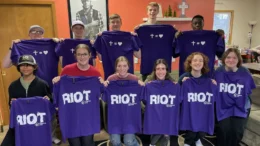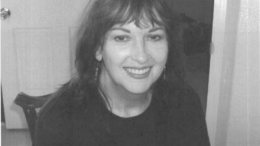The UPMC Northwest hospital is primed to begin administering COVID-19 vaccines to those outside the health profession.
There’s one big problem, though.
“The biggest issue is the vaccine supply,” said Kaitlyn Speer, director of operations and pharmacist at UPMC Northwest. “There is an incredible lack of supply. We are ready and prepping for this, going through plans for mass inoculations to be sure we will have everything ready to go. We just need the state to get us the vaccines.”
In addition, UPMC Northwest has provided vaccines to emergency responders and area nursing homes. A campaign to inoculate other health providers such as chiropractors, dentists, dialysis clinics and more starts today at the hospital and will be run through next week.
More people are eligible
While those sectors are receiving the COVID vaccines, the clamor grows for the hospital to ramp up its inoculation rollout to include a broader segment of the population. Some of that demand has been spurred on by other area health care facilities’ earlier expansion of the vaccine program.
Earlier this week, the state health department further confounded local hospitals’ efforts to expand inoculation efforts by changing its distribution priorities.
Tabbed Phase 1-A, the category was extended beyond health care workers and long-term care facility residents to include all persons 65 or older as well as younger people with health conditions. Both of those groups had been listed at a later inoculation period.
That switch has lit up the phones at UPMC Northwest and local physicians’ office from senior citizens who now have a higher priority ranking to receive the vaccine.
‘We just don’t have enough’
Despite the hefty expansion of who can be in the earlier vaccination category, widespread inoculations remain stymied because of the limited supply of vaccine in Pennsylvania as well as across much of the U.S.
“Moving such a large group into the 1-A category threw us for a little bit of a loop,” said Speer. “It took the process and flipped it around.”
Speer said UPMC Northwest has repeatedly asked state health officials for more vaccine.
“We know there will be thousands of individuals in our service area 65 and over who want the vaccine,” she said. “But we just don’t have enough supplies. If they could give me 15,000 or so vaccines, we could implement (the inoculation) right now. We requested it but it doesn’t mean we will get it because we are pitted against other places across the state who are asking for it.”
The allocation of vaccine supplies to Pennsylvania is at such a slow pace that “they say it would take 52 weeks for everyone to get one dose in Pennsylvania and so that is just not enough,” said Speer.
Late February date
UPMC Northwest will not launch a mass inoculation program until it has a sufficient amount of vaccine.
“We won’t open (the inoculations) and just vaccinate a small number of people in a large group that all wants it,” said Speer. “That is not equitable. We don’t want 20 doses here and there. How would you pick who gets it? We want to be able to do a lot of people all at once so we can really give everyone a chance to get it.”
The hospital is hopeful there could be a sufficient supply of vaccine dosages to cover the over-65 people as well as those with health conditions by the end of February.
“I think that is a reasonable time frame. I want to be able to offer it but it will come down to supply,” said Speer.
No appointments scheduled
With no confirmation as to when or how much vaccine will be directed by the state to UPMC Northwest, the hospital is not scheduling inoculation appointments. The bulk of the vaccine-related inquiries to the hospital are about scheduling appointments.
“Calling us doesn’t change anything. Believe me, we are as eager to get it to them as they are eager to get it,” said Speer. “But we won’t take appointments until we have guaranteed vaccines coming because we don’t want to make those appointments and keep canceling them because of supply.”
Details as to how appointments may be made as well as a time and place for the inoculations are being worked out at the hospital. The lack of specifics about vaccine shipments is slowing down and often changing the procedures that are being developed.
“There are just a lot of unknowns and things that are out of our control,” said Speer. “But as soon as we have the vaccines in hand, we can turn this on quickly and we will get that information out fast to everyone.”






































